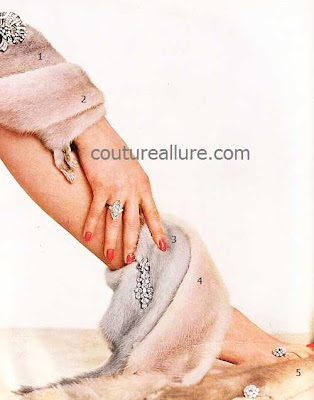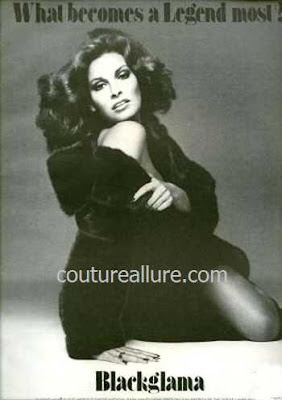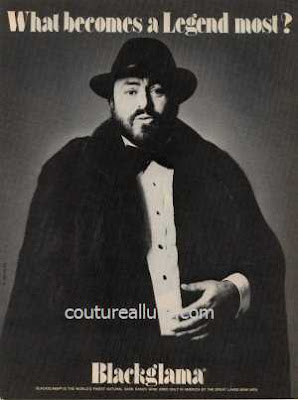 Five of the rarer light colors were: 1. Arcturus - lavender beige, 2. Morning Light - blue beige, 3. Azurene - blue grey, 4. Aeolian - taupe, 5. Tourmaline - pale beige. These colors were all natural, not dyed, and, according to EMBA, each represented less than 1% of the world's mink. The pelts above are photographed with Harry Winston diamonds.
Five of the rarer light colors were: 1. Arcturus - lavender beige, 2. Morning Light - blue beige, 3. Azurene - blue grey, 4. Aeolian - taupe, 5. Tourmaline - pale beige. These colors were all natural, not dyed, and, according to EMBA, each represented less than 1% of the world's mink. The pelts above are photographed with Harry Winston diamonds. This ad, from 1957, features a Ritter Bros. coat in EMBA Jasmine, a natural white mutation mink color.
This ad, from 1957, features a Ritter Bros. coat in EMBA Jasmine, a natural white mutation mink color. This ad, from 1963, shows a coat designed by Emeric Partos and custom made by Bergdorf Goodman in EMBA Morning Light mink.
This ad, from 1963, shows a coat designed by Emeric Partos and custom made by Bergdorf Goodman in EMBA Morning Light mink. This ad, from 1966, shows a coat by Maximilian in EMBA Tourmaline mink fur.
This ad, from 1966, shows a coat by Maximilian in EMBA Tourmaline mink fur.In 1941, a group of mink ranchers centered in the Great Lakes region formed The Great Lakes Mink Association, another marketing designation. The GLMA ranchers developed a unique strain of perfect black mink and marketed them under the trademark Blackglama. Their famous ads feature celebrities wearing Blackglama furs with the tag line, "What becomes a legend most?".
 Racquel Welch in 1976.
Racquel Welch in 1976. Luciano Pavarotti in 1981.
Luciano Pavarotti in 1981. Sophia Loren in 1982.
Sophia Loren in 1982.In 1985, EMBA merged with The Great Lakes Mink Association (GLMA) to form The American Legend Cooperative. American Legend is now the trademarked name given to the furs produced by this cooperative. Only the finest quality minks can receive the American Legend trademark status. The American Legend Cooperative uses super models and celebrities in their ads today.
 Celine Dion in a modern Sorbara Furs ad.
Celine Dion in a modern Sorbara Furs ad.